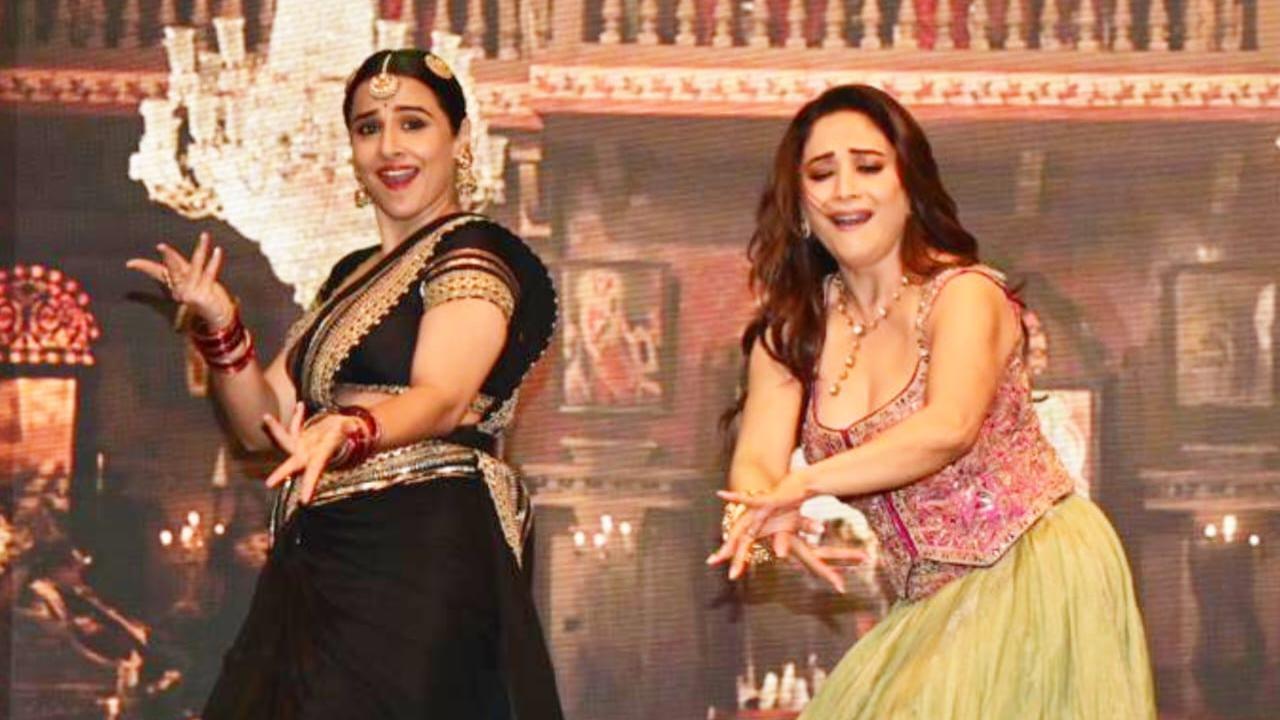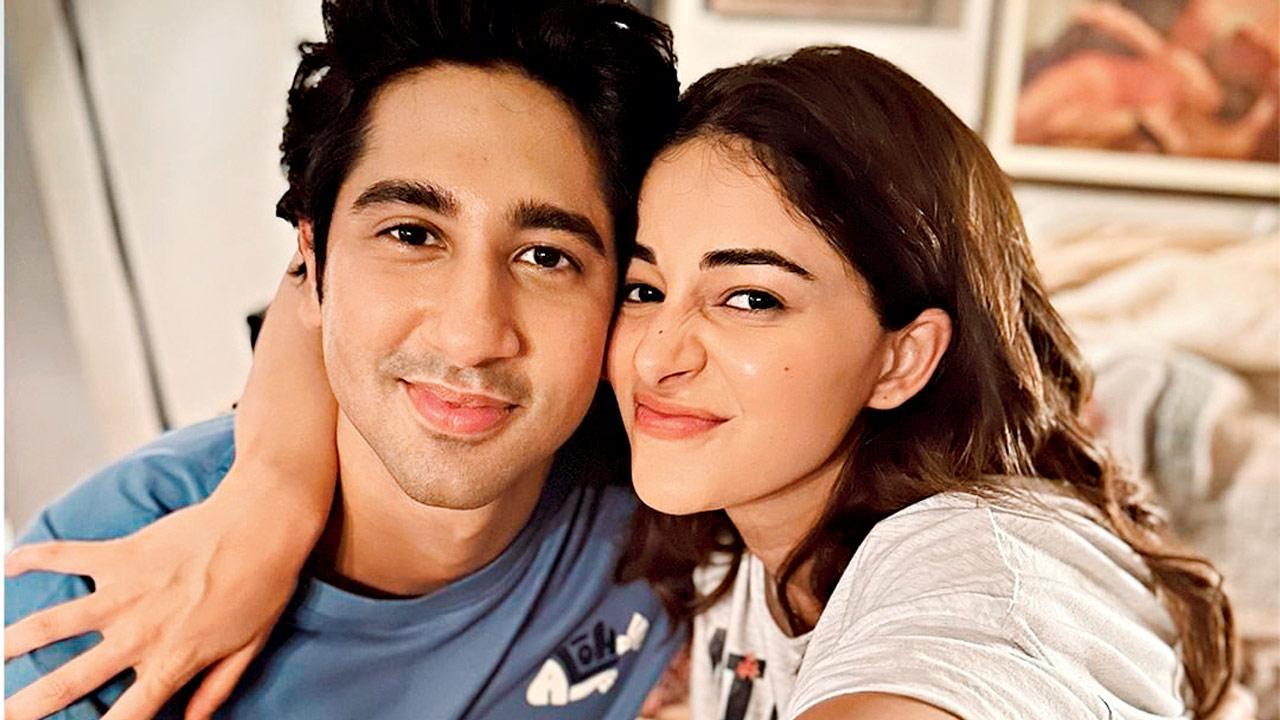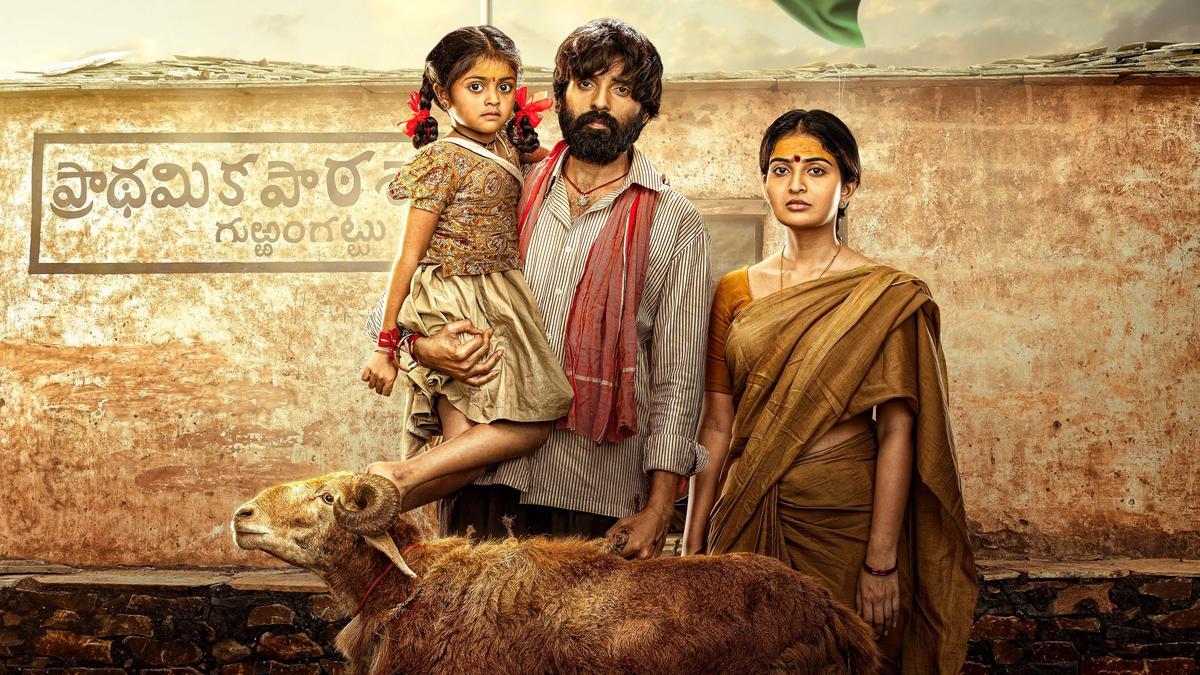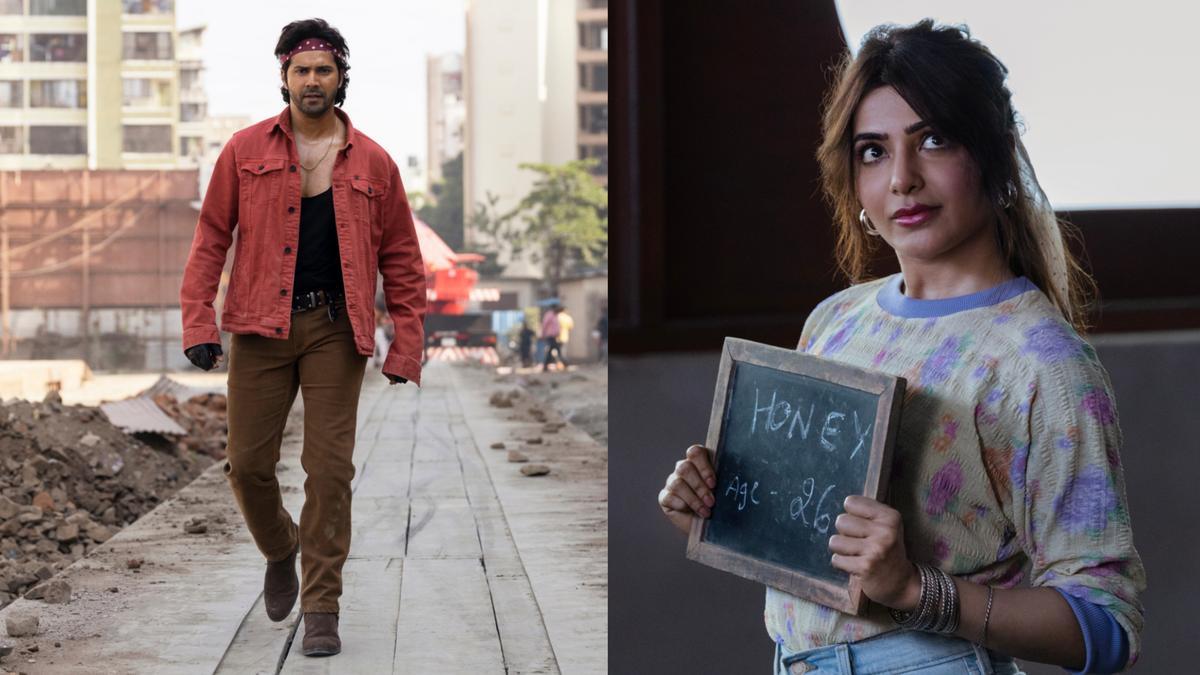
In the gripping opening of Joju George’s sensational drama, “Pani,” audiences are immediately thrust into the chilling scene of a brutal murder carried out in broad daylight. This shocking beginning sets a grim tone, leading viewers to anticipate that the murder will form the central axis around which the narrative orbits. However, George deftly subverts this expectation by steering the plot into a different direction, pivoting from this initial act of violence to a seemingly benign altercation in a supermarket. It is here, amid the mundane aisles, that the story truly ignites.
Don (played by Sagar Surya) and Siju (played by V.P. Junaiz), unfamiliar to the world of crime and yet already snared by its intoxicating allure, are the individuals responsible for the murder. Their first taste of crossing moral lines brings with it a rush that dismantles their previous lives. As they find themselves embroiled in a supermarket brawl, the film reveals their rapid and irrevocable transformation from mere novices to determined criminals. This pivotal scene marks their descent into a life where the boundaries between hunters and the hunted blur dangerously.
The storyline intricately intertwines with the parallel narrative of Giri (played by Joju George), a prominent figure embroiled in a shadowy mafia syndicate that dominates Thrissur city. With an adroit script coiled tightly by George, the film explores the nexus between the fearless duo and the seasoned underworld leaders they threaten to unhinge. Driving the narrative are the unpredictable, visceral instincts of Don and Siju, casting a long, ominous shadow over the tightly-knit crime family led by Giri.
Though “Pani” seemingly treads the familiar ground of revenge-driven plots, it distinguishes itself through its concentrated focus on the volatile dynamics within and between its loosely aligned characters. The unpredictability of Don and Siju’s actions injects palpable tension, rendering the realm of crime inherently unstable. As Don insightfully observes, while the mafia appears mighty, their syndicate is so large that its vision cannot detect the fledgling threats posed by their new adversaries. This undercurrent of stealth and invisibility heightens the stakes, suggesting that no empire is insurmountable.
.
The film deftly sketches the complex interpersonal ties within the syndicate. Giri’s close associates—played by Prashanth Alexander, Bobby Kurian, Sujith Sankar, and Abhaya Hiranmayi—share a camaraderie born of years spent together, their bond serving as a bulwark against the chaos of their criminal dealings. The emotional anchor of the narrative is the portrayal of Giri’s intense relationship with Gowri (played by Abhinaya), which, though conveyed in brief strokes, adds depth and humanity to the looming tragedy.
While an image of structural calm is maintained on the surface by the syndicate, its tentacles of influence stretch deep into society, maneuvering effortlessly through strategic placements within the civic and societal hierarchy. Notably, Kalyani (Chandini Sreedharan) serves as the ACP, yet another proof of their pervasive reach. Their vested interests in legitimate fronts like construction and real estate mask the unsavory origins of their power. The filmmakers craftily present this juxtaposition, leading the audience to find sympathy with characters otherwise steeped in criminal actions.
Joju George, helming both the screenplay and direction, evidences a firm grasp over the rhythm and tempo of unfolding events. The film’s pacing—intentional and engaging—ensures that audience attention never wavers. George’s skill is particularly evident in a spectacularly captivating car chase, executed with precision and flair, leaving room for further explosive developments to follow before the film’s denouement.
Nonetheless, “Pani” is not without its troubling aspects. Certain scenes are saturated with graphic violence, pushing the boundaries of viewer tolerance. Additionally, the film’s reliance on sexual assault as a narrative device to justify male vengeance is a tedious trope that mars an otherwise tightly woven storyline.
Joju George emerges not only as a formidable actor but also a promising force in writing and directing, delivering a visceral crime drama that commands attention and reflection long after the credits roll.
“Pani” is currently making waves in theaters, presenting a gritty exploration of crime and morality against the backdrop of Malayalam cinema’s evolving landscape. Its intense thematic exploration and strong performances underpin a narrative that, while familiar, is invigorated through its bold execution and nuanced storytelling.










